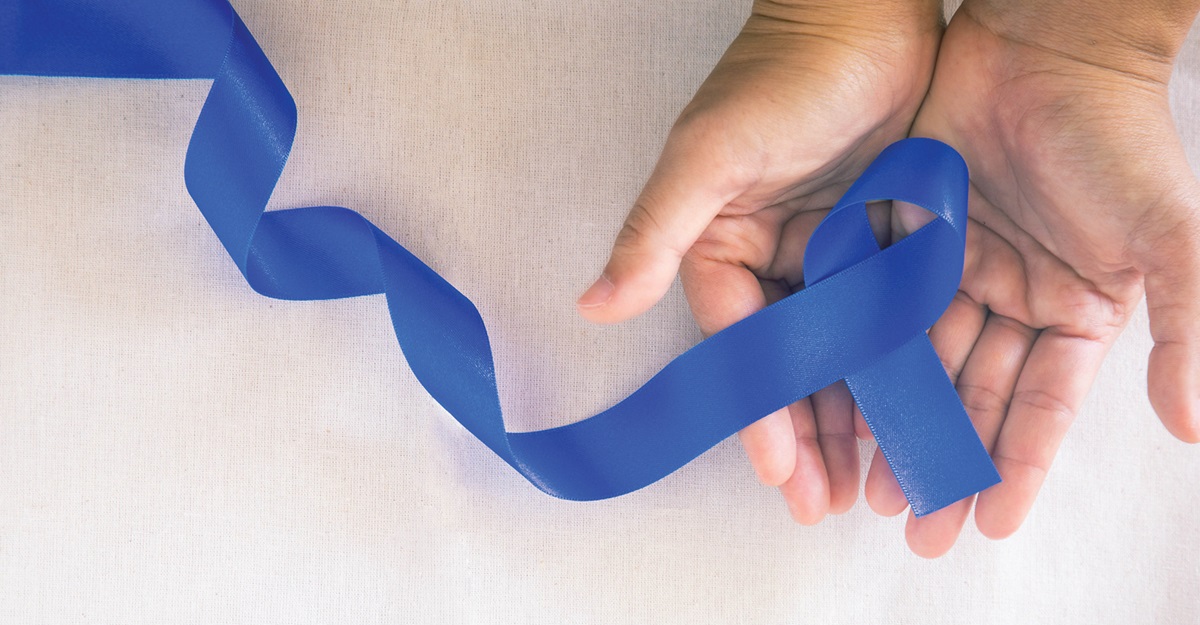US Family Health Plan eNews 2021 Issue 2
Posted 02/15/21
For more of eNews Member Newsletter
IN THIS EDITION:
Colorectal Cancer Screening Saves Lives
Get the screening that’s best for you!
Colorectal cancer is the third-most-commonly diagnosed cancer in men and women and the second-leading cause of cancer death in the United States.
Fortunately, there are a number of colorectal cancer screenings that can help find precancerous changes and detect cancer in its early stages when it is most treatable. See the table below to learn about each kind of screening and then talk with your doctor about which screening is right for you:
| Screening choices | How often screening is recommended |
Where screening is done |
|---|---|---|
| Fecal Occult Blood Test (gFOBT, iFOBT) or Fecal Immunochemical Test (FIT) | Every calendar year | At home |
| DNA-based Test (Cologuard®) | Every 3 years | At home |
| Flexible Sigmoidoscopy OR Screening Barium Enema | Every 4 years | At a facility |
| Colonoscopy Screening | Every 10 years | At a facility |
*Ask your primary care provider what schedule is right for you.
See your Member Handbook or contact Member Services for coverage details.
For additional information here is a link to the Martin’s Point health and wellness page — https://martinspoint.org/for-members-and-patients/health-and-wellness

We’re Here to Support Your Mental Health
Understanding Your Benefits and Resources
Here at the Martin’s Point US Family Health Plan, we care about you and your family’s health and well-being—both physical and mental. Statistically, military families are at an overall greater risk for mental health disorders, substance abuse, and even suicide. For some, the added isolation, heightened anxiety or depression, substance abuse, and financial difficulties brought on by COVID-19 can make things much worse. As a US Family Health Plan member, you have access to helpful mental health benefits and services. We want to make sure you know how to use them if you or a family member ever need mental health support.
Behavioral Health Care Partners: Martin’s Point has partnered with a company called Behavioral Health Care Partners (BHCP) to administer all the covered mental health and substance abuse benefits offered through your plan. These include the following:
- Inpatient care for mental health and substance abuse
- Residential substance abuse programs
- Partial hospitalization programs
- Intensive outpatient programs
- Crisis services
- Individual outpatient therapy
- Group therapy or family therapy
- Medication evaluation and management
For more information on what is offered through your plan, you can reach our BHCP team at 1-888-812-7335 from 8 am to 5 pm, Monday through Friday. This number is on the back of your US Family Health Plan member ID card and will connect you with a representative ready to listen to and support your needs. They can explain your behavioral health benefits and search for local providers with specialty skills tailored to your needs. These representatives are trained in crisis intervention if you need immediate help. Outside normal business hours, BHCP has an answering service to take messages. These representatives are also trained in crisis intervention if needed at the time of your call.
Social Work Care Managers: Martin’s Point also has designated social work care managers who work with you over the phone to offer support, resources, and help with planning goals to move you forward in making the changes you want in your life. This is a collaborative service to support you in what you are experiencing. To access this service, call 1-800-574-8494 option #1 and ask for a social work care manager to call you back.
Additional Suicide Prevention Resources: Beyond the benefits and resources provided through your Martin’s Point plan, there are additional resources available to you and your family. Are you or someone you know having thoughts of suicide? You can call the free Military Crisis Line for confidential support 24/7 at 1-800-273-8255, option 1. You can also reach the crisis line for veterans by sending a text to 838255 or starting an online chat at https://www.veteranscrisisline.net/get-help/chat
Education and self-advocacy can be your best weapons: We can all support each other by learning more about risk factors and warning signs. https://suicidepreventionlifeline.org/how-we-can-all-prevent-suicide/ offers helpful information about suicide risk factors. If you see the warning signs, speak up and seek help, as it could save someone’s life. Now more than ever we need to help each other and take care of ourselves. While we at Martin’s Point are partners in your care, you must always be your own health advocate, as well. Take control of your situation and seek help when you need it, as only you know you best.
As always, if you have an emergency, please dial 911 or visit your nearest emergency room for help. If you have questions about your medical benefits outside of your behavioral health coverage, please call Member Services at 1-888-674-8734.

COVID-19 Information
As a TRICARE Prime® plan, the US Family Health Plan follows TRICARE® benefits for COVID-19-related services. TRICARE covers COVID-19 vaccines for members of the US Family Health Plan. For information on the distribution and availability of the COVID-19 vaccine, please visit your state's CDC website.
For information that will help you understand how your US Family Health Plan covers health care services during this time, visit https://tricare.mil/HealthWellness/HealthyLiving/Coronavirus
Copay and Premium Changes
Effective January 1, 2021, the Department of Defense increased plan premiums and certain individual benefit copays for all TRICARE Prime® plans including the Martin’s Point US Family Health Plan. Those changes are as follows:
FOR MILITARY RETIREES ONLY
Please note: Active-duty family members or enrolled plan members who have Medicare Parts A & B do not have enrollment fees or copays for in-network, covered benefits.
Plan Enrollment Fees (As of January 1, 2021)
- Group A (Sponsor’s initial enlistment or appointment occurred before January 1, 2018) $303/year for individuals or $606/year for families
- Group B (Sponsor’s initial enlistment or appointment occurred on or after January 1, 2018) $366/year for individuals or $732/year for families
Plan Copay Changes (As of January 1, 2021)
- Specialty Office Visits referred by your PCP: $31 per visit (No increase)
- Urgent Care: $31 per visit (No increase)
- Emergency Room Visits: $63 per visit (waived if admitted) (Increased from $62)
- Inpatient Hospitalization: $158 per admission (Increased from $156)
- Ambulatory Surgery: $63 per procedure (Increased from $62)
- Skilled Nursing Facility Care: $31 per day (No increase)
- Maternity Services: $158 per admission, no separate copayment for separately billed professional charges (Increased from $156)
- Mental Health Services: Outpatient Individual/Outpatient Group $31 per visit (No increase)
- Mental Illness and Substance Abuse Treatment Inpatient (must be preauthorized and is subject to annual limitations): $158 per admission, no separate copayment for separately billed professional charges (Increased from $156)

Chest Colds—Feeling Better WITHOUT Antibiotics
What is a chest cold (acute bronchitis)?
A chest cold occurs when your airways swell and produce mucus in the lungs. That’s what makes you cough. A chest cold, often called acute bronchitis, lasts less than three weeks and is the most common type of bronchitis.
Symptoms can include:
- Coughing with or without mucus
- Soreness in the chest
- Feeling tired (fatigue)
- Mild headache
- Mild body aches
- Sore throat
Causes
Acute bronchitis is usually caused by a virus and often occurs after an upper respiratory infection. Bacteria can sometimes cause acute bronchitis, but even in these cases, antibiotics are NOT recommended and will not help you get better.
When to Seek Medical Care
See a doctor if you have any of the following:
- Temperature of 100.4 °F or higher
- See a doctor right away if your child is younger than three months old and has a fever of 100.4 °F (38 °C) or higher.
- Cough with bloody mucus
- Shortness of breath or trouble breathing
- Symptoms that last more than three weeks
- Repeated episodes of bronchitis
This list is not all-inclusive. Please see a doctor for any symptom that is severe or concerning.
Treatment
Acute bronchitis usually gets better on its own—without antibiotics. Antibiotics won’t help you get better if you have acute bronchitis. When antibiotics aren’t needed, they won’t help you, and their side effects could still cause harm. Side effects can range from minor issues, like a rash, to very serious health problems, such as antibiotic-resistant infections and C. diff infection, which causes diarrhea that can lead to severe colon damage and death.
Antibiotics treat (for example):
- Strep throat
- Urinary tract Infections
- Pneumonia
Antibiotics won’t help:
- Most bronchitis
- Many sinus infections
- Some ear infections
How to Feel Better
Below are some ways you can feel better while your body fights off acute bronchitis:
- Get plenty of rest.
- Drink plenty of fluids.
- Use a clean humidifier or cool mist vaporizer.
- Use saline nasal spray or drops to relieve a stuffy nose.
- For young children, use a rubber suction bulb to clear mucus.
- Breathe in steam from a bowl of hot water or shower.
- Suck on lozenges. Do not give lozenges to children younger than four years old.
- Use honey to relieve cough for adults and children at least one year old or older.
Ask your doctor or pharmacist about over-the-counter medicines that can help you feel better. Always use over-the-counter medicines as directed. Remember, over-the-counter medicines may provide temporary relief of symptoms, but they will not cure your illness.
Prevention
You can help prevent acute bronchitis and other respiratory diseases by doing your best to stay healthy and keep others healthy, including:
- Wash your hands often.
- Do not smoke and avoid secondhand smoke.
- Cover your mouth and nose when coughing or sneezing.
Source: https://www.cdc.gov/antibiotic-use/community/for-patients/common-illnesses/bronchitis.html
For more information here is a link to our Martin’s Point health and wellness page—https://martinspoint.org/for-members-and-patients/health-and-wellness
An Ounce of Prevention Can Make All the Difference
Making sure you get recommended preventive care is one of the most important steps you can take to protect your health. Download this handy checklist to stay on top of these screenings and vaccines. You can also keep track of your medications to make sure you are taking them as directed. If you have any questions about your care or your medications, contact your PCP.



